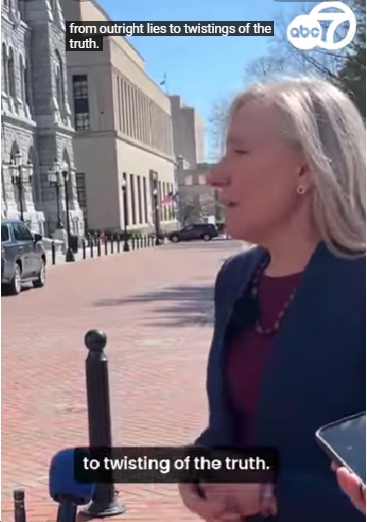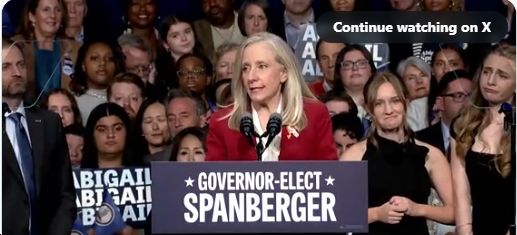See below for press releases by Reps. Abigail Spanberger (D-VA07) and Elaine Luria (D-VA02) regarding the “bipartisan, compromise framework to move [COVID-19 relief] negotiations forward” that was released yesterday by the “Problem Solvers Caucus,” of which both are members. As this Vox article explains, the Problem Solvers Caucus’ proposal “includes about $1.5 trillion in funding, and lands somewhere in between Republicans’ latest $650 billion ‘skinny stimulus,’ and Democrats’ more generous $2.2 trillion proposal,” and “is a product of efforts by 25 Democrats and 25 Republicans who make up the group, a number of whom represent battleground House districts.”
In response, eight Democratic House committee chairs – including Rep. Bobby Scott (D-VA03) released a statement which stated:
“While we appreciate every attempt at providing critical relief to American families, the Problem Solvers Caucus’ proposal falls short of what is needed to save lives and boost the economy.
“Over four months ago, the House passed The Heroes Act. This critical legislation supports testing, tracing, and treatment needed to crush the coronavirus. It honors our heroes on the frontlines by preventing devastating state and local layoffs. It provides relief to prevent rising hunger and evictions. And it puts money in the pockets of working families so that we can overcome this crisis.
“Unfortunately, today’s proposal retreats from these critical policies and fails to respond to additional issues that have emerged since May. When it comes to bolstering the public health system, supporting state and local governments, and assisting struggling families, the Problem Solvers’ proposal leaves too many needs unmet. With the general election just 49 days away and the Postal Service sabotaged by the Trump administration, their proposal also abandons our responsibility to protect the life of our democracy.
“With infections and deaths still rapidly rising, tens of millions out of work, and state and local government layoffs accelerating, the health and economic crisis demands action. That will require President Trump and Republican leaders to come back to the table and work with Democrats to save lives and livelihoods.”
I tend to agree with the House Democratic committee chairs on this; it’s time for Trump, McConnell, etc. to negotiate in good faith for a change and to work on passing something serious, ASAP. How about you?
Spanberger: Democrats & Republicans “Must Get Back to the Negotiating Table” on COVID-19 Relief
Today, the Congresswoman Joined Her Fellow Members of the Problem Solvers Caucus to Introduce a Bipartisan, Compromise Framework to Move Negotiations Forward
Washington, September 15, 2020
**VIDEO: Spanberger Remarks at Rollout of “March to Common Ground” Framework**
WASHINGTON, D.C. – U.S. Representative Abigail Spanberger today joined her fellow Members of the Problem Solvers Caucus — comprised of 25 Democrats and 25 Republicans — to unveil the caucus’ “March to Common Ground” framework to help break the gridlock on the latest COVID-19 relief package.
This morning, Spanberger spoke outside the U.S. Capitol to help announce the bipartisan framework, which was developed after listening to constituents and reaching out to businesses and community organizations over the past six weeks. The bipartisan package focuses on key areas of need — including COVID-19 testing, unemployment insurance, broadband internet, direct payments, worker and liability protection, small business and non-profit support, food security, schools and child care, housing, election support, and state and local aid.
Click here to watch Spanberger’s remarks.
“Every day, I hear the personal, heartbreaking stories of dire healthcare and financial situations facing Central Virginians. Working families are struggling to pay the bills after the loss of a job. Small businesses are hurting and unable to give their employees the assurance of long-term employment. Schools are unsure of when they will return to normal, and healthcare workers continue to be on the front lines of a global pandemic that has yet to be contained in our country. Standing on the sidelines in this moment of national uncertainty is out of the question,” said Spanberger. “The people of Central Virginia expect their elected officials to pursue common ground — and this package provides an opportunity for Congress to move forward and do its job in the face of these circumstances. We need to focus on supporting the programs that matter to our constituents — not worry about the short-term political implications of legislation, and leadership in both parties must get back to the negotiating table.”
Specifically, the framework is designed for a six month horizon and through the next inauguration, except for state and local funding which extends for a full year. Depending on the severity of the pandemic and if a successful vaccination program is adopted by March, 2021, a system of automatic “boosters” are designed to incrementally increase the amount of relief to individuals and families. Conversely, a system of “reducers” will decrease the total cost of the package.
The Problem Solvers Caucus framework calls for both new stimulus money and the reallocation of previously appropriated Coronavirus Aid, Relief, and Economic Security (CARES) Act funding, and it allocates resources to the following key categories:
- COVID-19 Testing & Healthcare ($100B)
- Direct Assistance to Individuals & Families ($316B)
- Unemployment Assistance ($120B)
- Small Business & Non-profit Support ($290B)
- School & Child Care ($145B)
- State & Local Aid ($500.3B)
- Election Support ($400B)
- Broadband, Agriculture, USPS, & Census ($52B)
- Worker & Liability Protections
- Automatic Boosters & Reducers
Click here to read the full framework.
Congresswoman Elaine Luria and the Problem Solvers Caucus Release Framework on Future COVID-19 Relief Package

September 16, 2020
Press Release
WASHINGTON, D.C. – Yesterday, Congresswoman Elaine Luria joined her colleagues from the Problem Solvers Caucus (PSC) to present the “March to Common Ground” framework for future COVID-19 relief legislation. This pragmatic and comprehensive framework garnered the support of PSC membership, which consists of 25 House Democrats and 25 House Republicans.
“We must do more to ensure meaningful progress on the next COVID-19 relief package,” said Congresswoman Elaine Luria. “The COVID-19 pandemic continues to devastate families and small business owners throughout Coastal Virginia, and Congress must act. This framework presents an achievable and bipartisan path to deliver for our nation during this unprecedented public health emergency and economic crisis.”
The “March to Common Ground” framework contains a variety of proposals designed to meet critical areas of need. It calls for new stimulus money and reallocating previously appropriated CARES Act funds, to achieve objectives such as:
- $100 billion for testing and health care, including funding for testing, contact tracing, and assistance for health care providers;
- $500.3 billion to assist states and localities. This would help state and local governments cover COVID-related expenses and general revenue shortfalls;
- $316 billion in direct assistance to individuals and families. This would temporarily increase Supplemental Nutrition Assistance Program (SNAP) and Special Supplemental Nutrition for Women, Infants, and Children (WIC) benefits. Also, the funding would provide another round of stimulus checks, rental assistance, and student loan forbearance;
- $25 billion for aquaculture and agriculture producers and processors. Congresswoman Luria recently urged House leadership to provide robust funding in future COVID-19 relief legislation to help the local aquaculture industry;
- $290 billion for small businesses and non-profits, including an injection of $240 billion into the Paycheck Protection Program (PPP) and $50 billion for the Economic Injury Disaster Loan (EIDL) Program;
- $12 billion for internet hotspots in rural and underserved communities;
- $145 billion for schools and childcare. The framework calls for significant relief for K-12 schools for virtual, hybrid, or in-person learning, and higher education institutions;
- $15 billion for the United States Postal Service (USPS) and the elimination of the full pre-funding requirement.

On Tuesday, the Problem Solvers Caucus held a press conference to unveil the new “March to Common Ground” framework. You can find footage of the press conference here.
Congresswoman Elaine Luria represents Virginia’s 2nd Congressional District. She serves on the House Armed Services Committee, where she is the Vice Chair of the Seapower and Projection Forces Subcommittee, and the House Committee on Veterans’ Affairs, where she serves as Chair of the Disability Assistance and Memorial Affairs Subcommittee.





![[UPDATED] Leaders Jeffries, Schumer Announce Gov. Abigail Spanberger Will Deliver the Democratic Response to Trump’s State of the Union Address on 2/24](https://bluevirginia.us/wp-content/uploads/2026/02/spanbergersotu.jpg)












